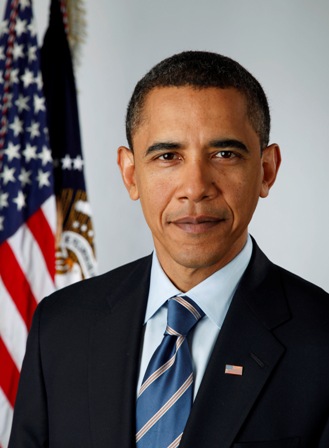
Courtesy, Wikipedia.org
“…[W]ith no opposition, there is no freedom.” Vaclav Klaus
One month ago, Barack Obama took the oath of office to become the 44th President of the United States of America. In the course of that month, President Obama forced through Congress–in a record-breaking 700 hours and largely along party-lines–the largest spending bill in American history, proposed a second, massive, spending bill to reward mortgage delinquency, nominated a motley crew of public “servants” with tax and other ethical problems as well as lobbyists (remember how they were the root of all evil during the campaign?) to serve in his cabinet and on his staff, and revoked the Mexico City policy, just to name a few of his most noxious actions. For those of us who were at least hoping for a competent and scrupulous, albeit liberal administration, this is not the change we were expecting.
President Obama is the duly-elected President of the United States. I am not questioning his right to enact policies that he believes will benefit the nation, but I am questioning the efficacy of his policies. President Obama and his Democrat-allies on Capitol Hill have argued that bipartisanship–for which American voters have long expressed a preference–means acquiescing to the new president. We must be careful not to deceive ourselves: just as gold is refined by fire, so too, a nation’s policies are refined by informed dissent.
I want to be a part of that informed dissent. Can I contribute anything to the on-going debate that the countless other bloggers cannot? I don’t know. First of all, though, I want it to be clear that I am not a blogger; I am a student of politics–both practical and theoretical–and I believe that a rational, systematic analysis of the actions taken by the Obama Administration can indeed be a refreshing addition to this important national conversation. America is too great to make decisions based upon a monologue. I look forward to lending my voice to this conversation and, hopefully, saying something worthwhile.
Read Full Post »


